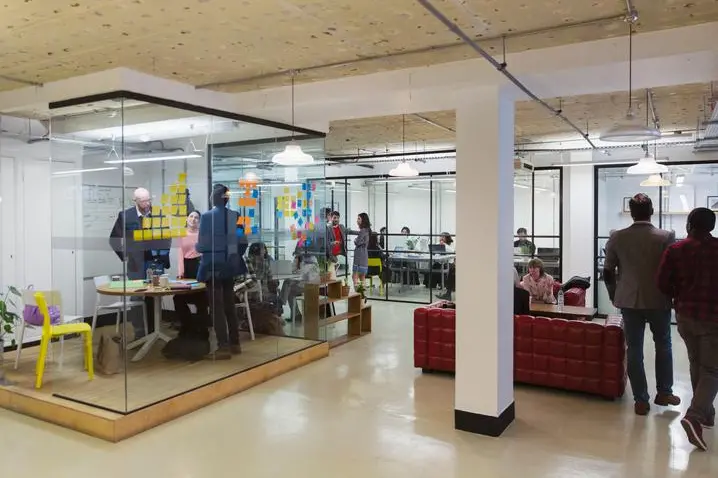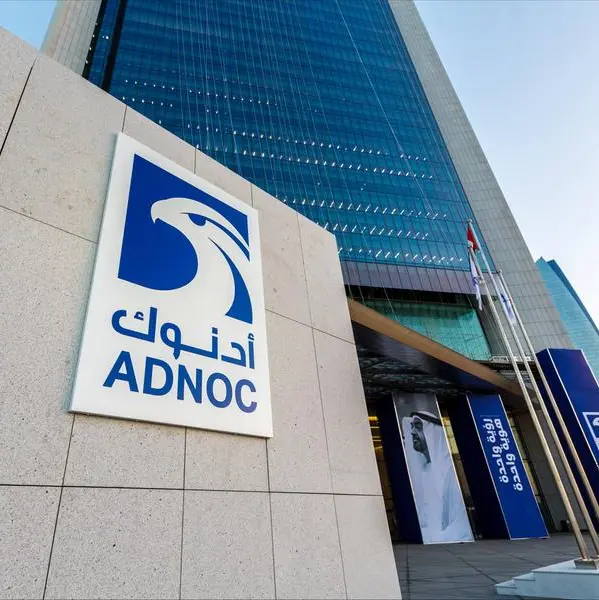PHOTO
A Jordanian company producing antibodies from camel milk (Monojo), a Tunisian firm behind a bracelet that detects epilepsy seizures (Epilert) and a United Arab Emirates-based agricultural technology firm that uses “Liquid NanoClay” to turn desert into fertile land (Desert Control) are among three of the companies named among the 100 most promising start-ups in the Arab World by the World Economic Forum (WEF).
WEF and the Bahrain Economic Development Board said in a press statement issued on Monday that its list was compiled from almost 400 applications and includes firms from 17 countries. Entrepreneurs from selected firms will take part in dialogue on the region's most pressing challenges at the biennial World Economic Forum on the Middle East and North Africa, which will take place at the Dead Sea resort in Jordan on April 6-7.
“The Arab world will need its private sector to address youth unemployment, the current skills gap for the Fourth Industrial Revolution and the inclusion of women in the workforce. Start-ups, and the entrepreneurs building them, are key to a strategic public-private dialogue on these issues and to creating corresponding new opportunities in society,” Mirek Dusek, a member of the World Economic Forum's executive committee and deputy head of the Centre for Geopolitical and Regional Affairs, said in the press statement.
The 2019 list of Arab start-ups also includes some more established start-ups that also made the last ranking of 100 top Arab start-ups produced in 2017, including ride-hailing firm Careem (which last week announced its $3.1 billion acquisition by Uber), financial comparison sites souqalmal and yallacompare, and cryptocurrency exchange BitOasis.
The firms were picked by a panel of judges including prominent venture capitalists such as Beco Capital's co-founder Amir Farha, Leap Ventures' founder Hala Fadel and the CEO of Saudi Technology Ventures, Abdulrahman Tarabzouni.
Some 18 of the 100 firms chosen by the panel were categorised as media ventures, 16 were ecommerce platforms, 14 were health-related, 12 were fintech firms and 11 were education-related ventures.
An accompanying report on The Start-up Ecosystem in the Arab World by funding platform Magnitt stated that $153 million worth of investments were made via 92 investments into start-ups in Arab countries in the first quarter of 2019, which is slightly below the $165 million invested in 105 firms in the same quarter of last year, according to an earlier Magnitt report. Yellow Door Energy raised the most, with a $65 million deal completed in January.
Robert Mogielnicki, resident scholar at the Arab Gulf States Institute in Washington, argued that firms operating in fintech, data analytics and logistics or transport technologies were “likely to be the fastest-growing and most transformative technology sectors in Gulf Arab states”.
“Financial entities across the region – including Dubai International Financial Centre, Abu Dhabi Global Market, and Bahrain FinTech Bay – are focusing on fintech as a promising avenue for economic diversification,” Mogielnicki said in an emailed response to questions from Zawya.
“Flush with capital and possessing increasingly mature financial sectors, Gulf Arab economies are ripe for the creative disruption of fintech technologies.”
He added that data analytics was “essential for the success of digital transformation programs taking place across government entities and private sector firms in the region”, and said that logistics technologies could help to augment growth in more resource-scarce economies in the region that rely more heavily on trade.
(Reporting by Michael Fahy; Editing by Mily Chakrabarty)
Our Standards: The Thomson Reuters Trust Principles
Disclaimer: This article is provided for informational purposes only. The content does not provide tax, legal or investment advice or opinion regarding the suitability, value or profitability of any particular security, portfolio or investment strategy. Read our full disclaimer policy here.
© ZAWYA 2019





















